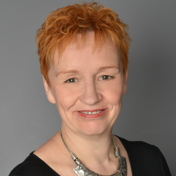My first degree was from Edinburgh University in Linguistics and German, and I initially worked in the media. Following my decision to change direction and pursue a career in clinical psychology, I trained at London's Institute of Psychiatry, qualifying as a clinical psychologist in 1992. In 1999 I also gained BABCP accreditation as a Cognitive Behavioural Psychotherapist.
After qualifying I worked in inner city London for many years, mainly in a community mental health team and an acute mental health ward. I developed an interest in psychosis and also - in response to my experience of the complexities and limitations of offering mental health services to people in very difficult life situations - in critical approaches to mental health practice and in the service user/survivor movement. Alongside my clinical work I was manager of a psychology team and a tutor on the doctoral programme in clinical psychology at University College London. I also served as Media Officer for the British Psychological Society Division of Clinical Psychology.
I came to Salomons/CCCU in 1999, initially as Academic and Research Tutor. Since 2005 I have been a Director of the clinical psychology programme. In addition, I have worked clinically in local NHS services and within the Institute's Practice Consultancy service, as well as teaching on our Cognitive Behaviour Therapy programme and PhD in Professional Practice.
My clinical, research and teaching interests include psychological approaches to psychosis as well as community and critical psychology.
I am interested in the power of ideas and am interested in promoting debate about 'taken for granted' ideas in mental health. I have published extensively on critical approaches to mental health and particularly psychosis.

